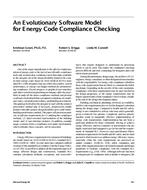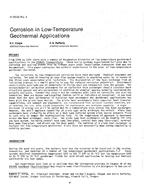The thermal performance of a floor-supply displacement ventilation system was evaluated in a large climate chamber designed to simulate a single span of an office building. Detailed measurements were made to investigate the indoor environment and thermal characteristics of this system. The temperature gradient in the room could be kept smaller by the cooling effect of an air-permeable floor. Lowering the height of heat sources, increasing the heat load, and decreasing the supply air volume all caused greater vertical temperature differences in the occupied zone. The temperature gradient was kept nearly constant throughout the room, though a temperature rise of 0.3°C – 0.5°C (0.5°F – 0.9°F) was observed near the heat source when clustered at one location. Perimeter load caused by warm or cold windows resulted in a disorder of the thermal stratification. Thermal comfort in the perimeter zone was considerably influenced by the radiation from the window.
Paper from IAQ 1997 — Design, Construction, and Operation of Healthy Buildings: Solutions to Global and Regional Concerns
Citation: IAQ Conference: IAQ 97
Product Details
- Published:
- 1997
- Number of Pages:
- 9
- File Size:
- 1 file , 580 KB
- Product Code(s):
- D-25169


